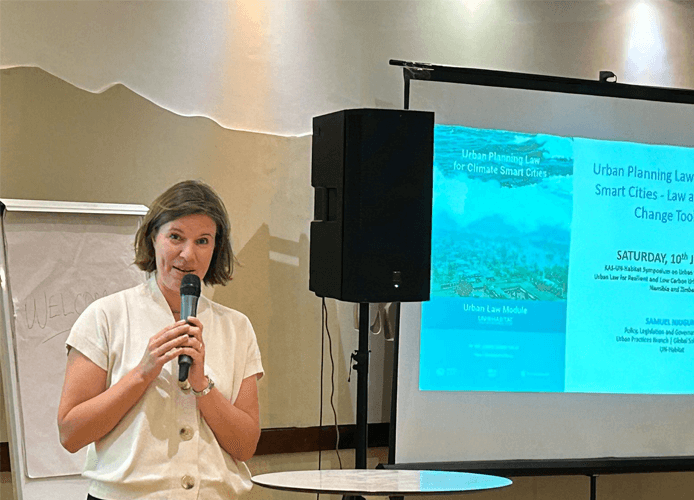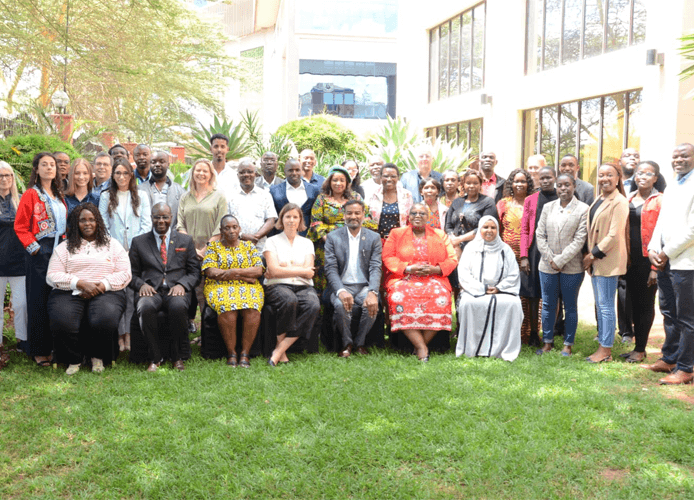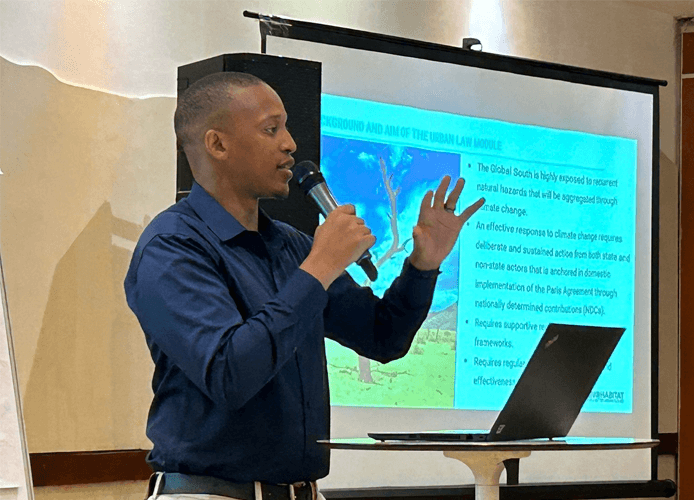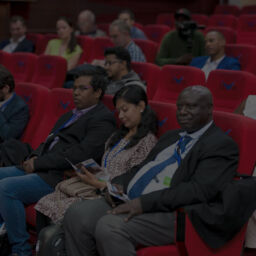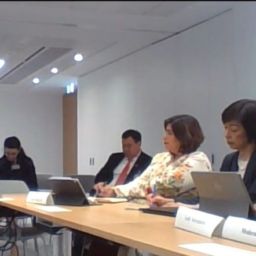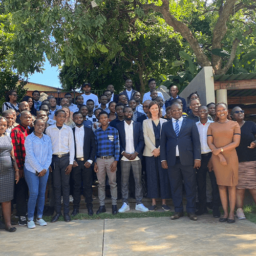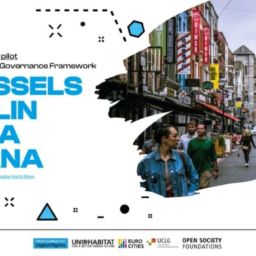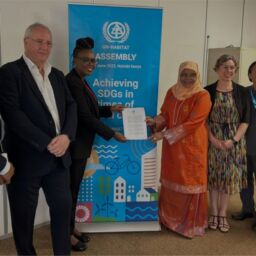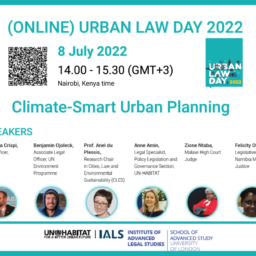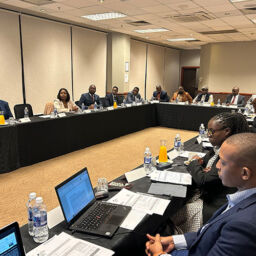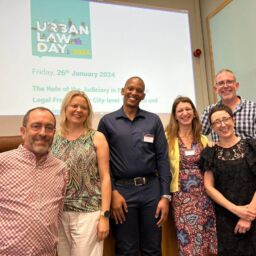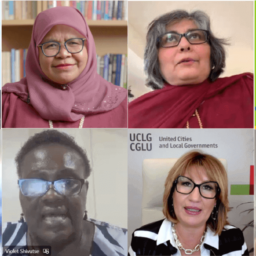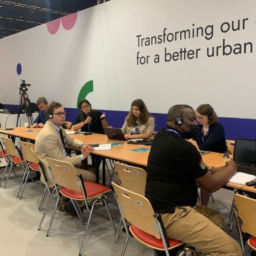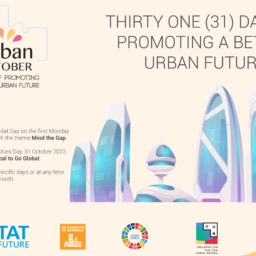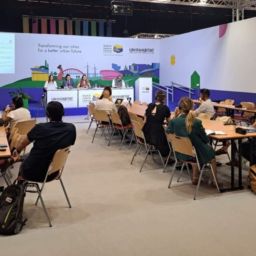UN-HABITAT AND KONRAD ADENAUFER STIFTUNG REGIONAL PROGRAMME ENERGY SECURITY AND CLIMATE CHANGE (KAS) SYMPOSIUM ON CLIMATE SMART URBAN PLANNING LAW AND CLIMATE CHANGE
Climate-Smart Cities: The Role of Urban Law:
Discover how urban law plays a crucial role in mitigating climate change effects and promoting sustainable urban development, based on experiences from Malawi, Namibia, and Zimbabwe. Learn how the Urban Law Module aids in achieving climate-smart and resilient cities.
Capacity Building for Sustainable Urbanization:
Participate in capacity-building sessions on law and climate change, equipping stakeholders with essential skills and knowledge for fostering low-carbon, green, resilient, and sustainable urban development.
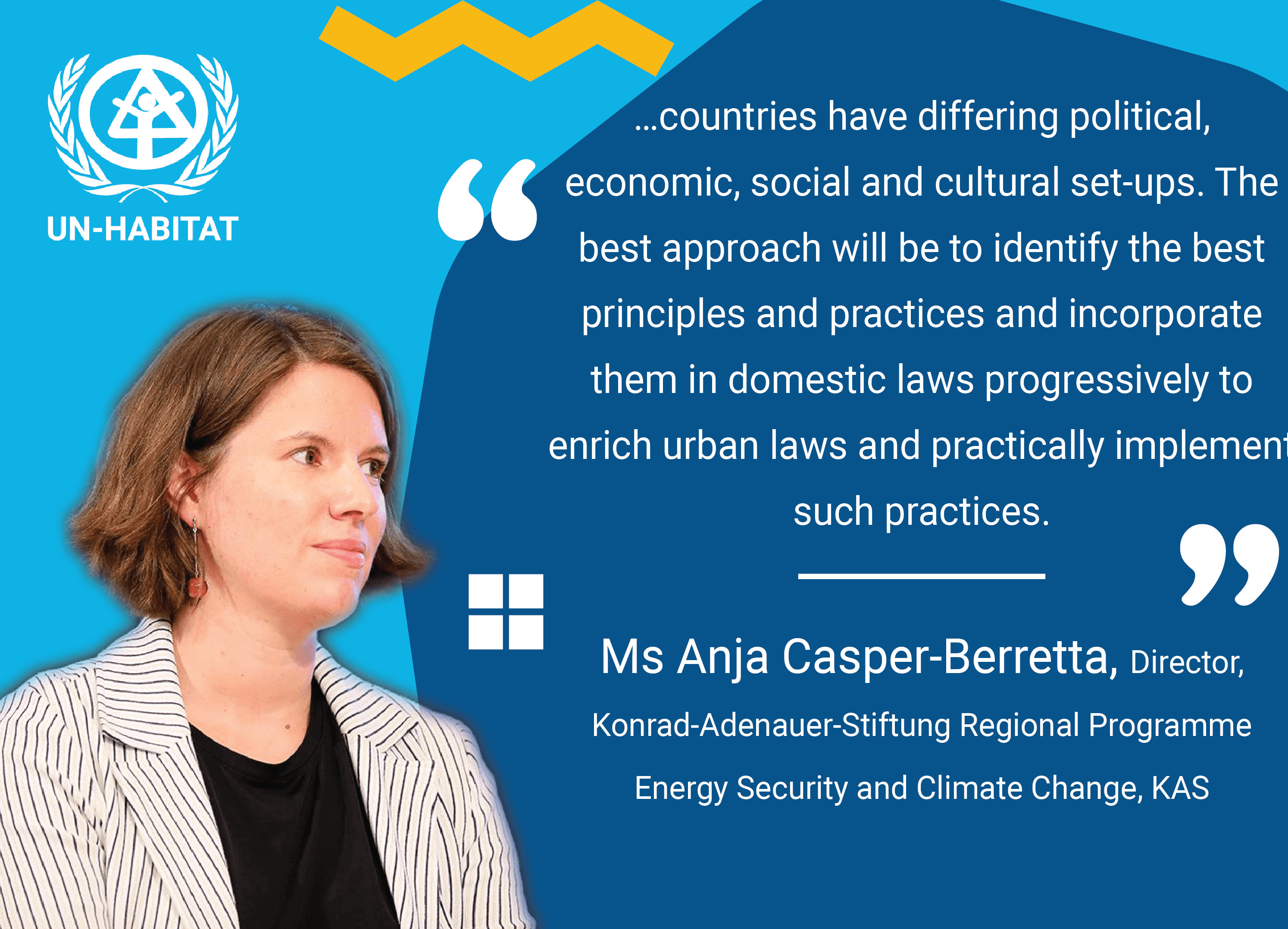
NAIROBI, KENYA, 10TH JUNE 2023
UN-Habitat, through the Policy, Legislation and Governance Section, in collaboration with the Konrad Adenaufer Stiftung Regional Programme Energy Security and Climate Change (KAS), recently organized a symposium and capacity development session focused on urban law and climate change, with a particular emphasis on experiences from Malawi, Namibia, and Zimbabwe. Attended by 27 stakeholders from various backgrounds, the event raised awareness about the vital role of urban law in addressing climate change effects and promoting sustainable urbanization. The symposium consisted of two interactive sessions: a roundtable symposium for knowledge sharing and a training session on law and climate change.
The first session centered around the Urban Planning Law for Climate Smart Cities: Urban Law Module of the Law and Climate Change Toolkit, a self-assessment tool developed in collaboration with UNEP, UNFCCC and the Commonwealth Secretariat to assist countries with domestic implementation of the Paris Agreement and their Nationally Determined Contributions. Representatives from Malawi, Namibia, and Zimbabwe shared their experiences and ongoing legal reform processes, demonstrating the toolkit’s effectiveness in achieving climate-smart and sustainable urban development.
The second session focused on an upcoming e-learning course on law and climate change which aims to equip stakeholders, including national and local governments, with the necessary skills and knowledge to foster low-carbon, green, resilient, and sustainable urban development.


